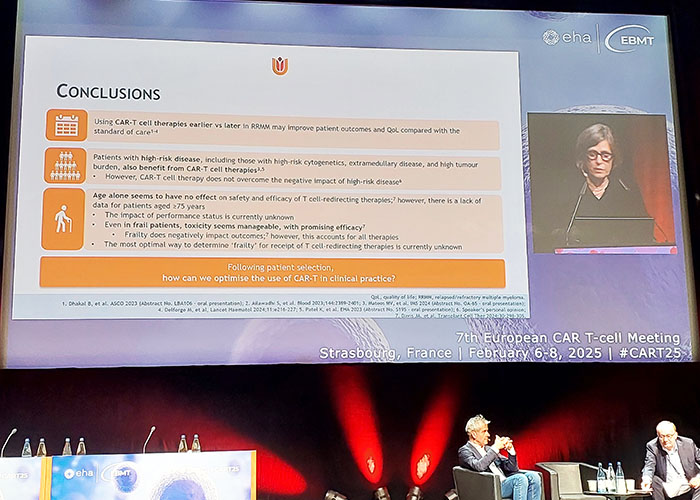There is no strict age limit for CAR-T therapy, but eligibility depends on the patient’s overall health, fitness, and ability to tolerate potential side effects rather than just age. While many clinical trials focus on younger or middle-aged patients, real-world data shows that older adults can also benefit from CAR-T therapy.
CAR-T Therapy in Older Patients (60+)
- Large B-Cell Lymphoma (LBCL): Studies show that patients over 65 have response rates similar to younger patients, but with a slightly higher risk of side effects.
- Multiple Myeloma (MM): CAR-T therapy is effective in patients over 70, though recovery time may be longer.
- Acute Lymphoblastic Leukemia (ALL): Older patients may have higher toxicity risks, but some still achieve remission.
Outcomes for Older Patients
- Effectiveness: Response rates are comparable to younger patients, with 40-50% achieving long-term remission in LBCL.
- Toxicity Risks: Older patients are more prone to severe side effects like Cytokine Release Syndrome (CRS) and neurotoxicity.
- Survival Rates:
o LBCL (Age 65+): ~35-45% survive beyond 5 years.
o Multiple Myeloma (Age 70+): Median survival is 2-4 years post-CAR-T.
o ALL (Age 60+): Survival rates are lower but improving.
Key Considerations for Older Adults
Functional Status Matters: Good physical health increases eligibility. Comorbidities Must Be Assessed: Heart, lung, or kidney conditions can impact safety. Pre-Treatment Optimization Helps: Some centers use modified CAR-T protocols for older patients.
Bottom Line:
While age alone is not a barrier, older patients require careful evaluation to balance risks and benefits. Many patients over 65-70 still respond well to CAR-T, achieving significant remission and extended survival.

Photo: 7th European CAR-T conference. Strasbourg, France 2025.
Publication date: March 2025










